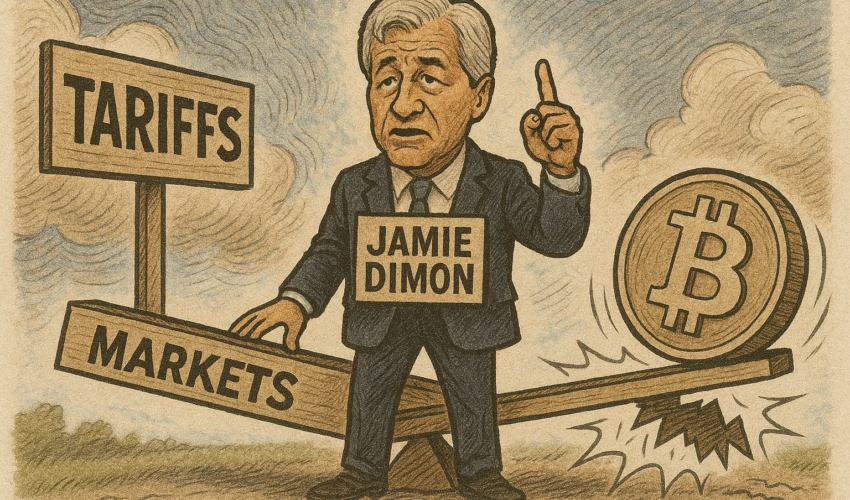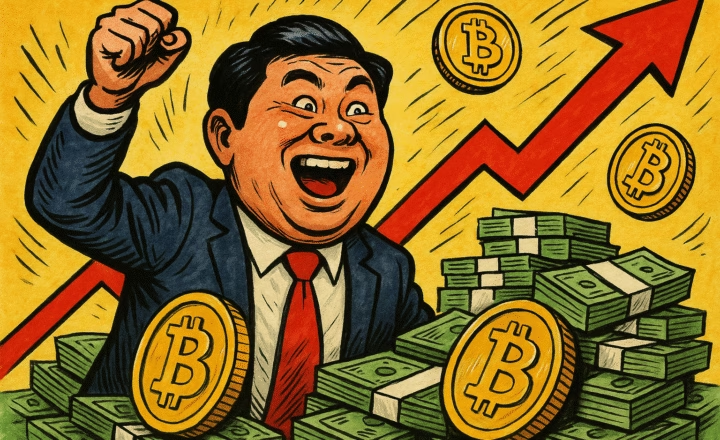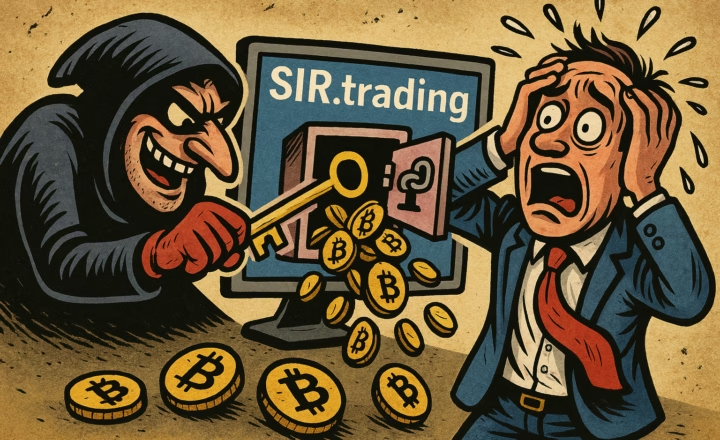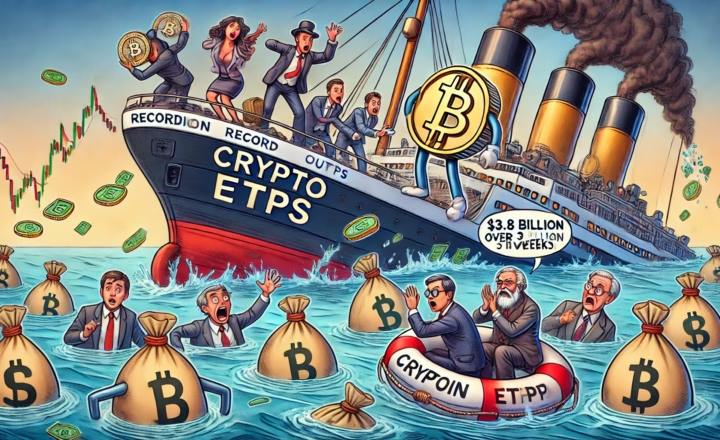JP Morgan CEO Cautions Against Trump’s Escalating Trade War
Jamie Dimon, CEO of JP Morgan Chase, has raised serious concerns about the potential fallout from President Donald Trump’s sweeping tariff policy, warning that the economic consequences could include rising inflation, slower growth, and even a recession.
In his annual letter to shareholders, Dimon described the administration’s approach to global trade as a “large additional straw on the camel’s back” and urged policymakers to resolve the issue swiftly.
“There are many uncertainties surrounding the new tariff policy,” Dimon wrote, pointing to possible retaliation, disruption of capital flows, declining corporate profits, and pressure on the U.S. dollar.
BREAKING: JP Morgan CEO, Jamie Dimon, says tariffs will increase inflation, likely cause a recession, and should be “resolved quickly.” pic.twitter.com/NqPc8LG2x9
— The Kobeissi Letter (@KobeissiLetter) April 7, 2025
He also warned that the policy could damage the U.S.’s longstanding economic alliances, noting that the negative effects may compound over time and become increasingly difficult to reverse.
Global and Crypto Markets React to Tariff Shock
Dimon’s remarks come amid a backdrop of mounting market turbulence. Since Trump began rolling out across-the-board tariffs—starting at 10%, with some countries facing as much as 34% or more—both equity and crypto markets have shown signs of strain.
On Monday, Bitcoin (BTC) dipped below $75,000, before rebounding slightly to around $78,000, marking a 4.3% decline over the past five days. The broader crypto market has also lost traction, with traders citing macroeconomic uncertainty and reduced risk appetite as key factors.
In traditional finance, U.S. equities are sliding, and investor sentiment continues to sour as fears grow that China will retaliate with reciprocal tariffs, further escalating trade tensions.
“The quicker this issue is resolved, the better,” Dimon added. “Some of the negative effects increase cumulatively over time and would be hard to reverse.”
Trump Holds Firm as Recession Fears Rise
Despite the growing alarm from financial leaders and global economists, President Trump has doubled down, announcing plans to raise tariffs on Chinese imports from 34% to 50% by April 9. According to reports emerging Monday, China has no intention of backing down, setting the stage for a full-fledged economic standoff.
The impasse has triggered heightened volatility in global markets and raised questions about the resilience of the post-pandemic recovery. Analysts warn that if capital outflows increase and investment slows, consumer confidence and employment could be the next to fall.
Dimon’s comments carry extra weight given his status as one of the most influential figures in global finance. While he has historically favored strong U.S. industrial policy, his remarks suggest that Trump’s tariff strategy may now be veering into self-defeating territory.
Final Thoughts: Bitcoin as a Hedge—or a Casualty?
For crypto investors, the unfolding trade war adds yet another layer of complexity. On one hand, Bitcoin is increasingly viewed as a hedge against fiat uncertainty and geopolitical risk. On the other, its recent price action suggests it is still tightly correlated with broader market sentiment and vulnerable to macro shocks.
If Dimon’s recession warning proves accurate, Bitcoin could either benefit from capital flight out of traditional markets or suffer alongside them in a wider liquidity crunch.
Ultimately, how digital assets weather this storm may depend less on ideology and more on investor psychology—and whether they see Bitcoin as part of the solution or part of the problem in a new era of economic realignment.












